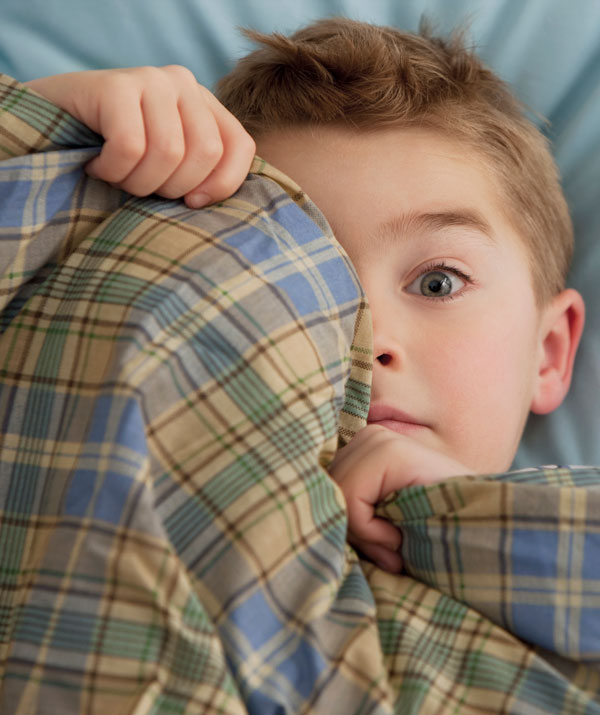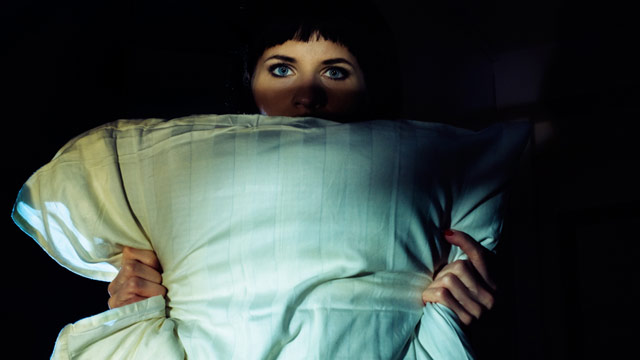Two of the most common causes of night waking in children are night terrors and nightmares. Many parents can find it difficult to distinguish which one is which.
Night terrors and nightmares happen in different parts of the sleep cycle and in different times of the night.
Night terrors usually occur before midnight when the child is in between a deep and light sleep stage. Whereas, nightmares tend to occur after midnight and happen during the light sleep stage, when we do most of our dreaming.
What are night terrors?
Around 5% of preschoolers suffer from night terrors.
Child psychiatrist and specialist in sleep problems, Dr Guinevere Tufnell says night terrors are triggered by an active brain.
“Night terrors are not the same as nightmares. They are triggered by brain activity, and are most common in preschool children. The majority of children grow out of them by the age of around four or five.”
During a night terror, part of the brain becomes aroused, while the rest remains in a state of deep sleep including the part that’s related to awareness and memory.
“If your toddler has a night terror, she’ll look as if she’s awake, even though she isn’t – and she probably won’t remember anything about it the next morning,” says Dr Tufnell.
How can you help?
Don’t treat her as if she is awake, or attempt to wake her up. Try to calm her down by being as relaxed as possible.
Make sure she’s safe by putting locks on doors and windows and gates on stairs, and ensuring there’s nothing she could trip over if she sleepwalks.
If night terrors are very frequent or disruptive, try keeping a diary of exactly when they occur. Then wake the child up a few minutes before one is due, every day for a week. There is often a pattern and doing this may put a stop to them.
If you are very worried, or if your child’s night terrors are frequent, take her to see your GP. She might recommend a short course of medication to help her sleep, or refer her so you can get a specialist’s opinion.

Nightmares are often caused by something that is worrying or upsetting your child.
(Image: Getty Images)What are nightmares?
Nightmares, on the other hand, are likely to wake your child up and are often easily recalled. They are normally caused by something that is worrying or upsetting your child – perhaps the death of a pet or relative, or even something they’ve seen on TV.
“Unlike night terrors, they are an expression of anxiety about something in day-to-day life, and their cause may not be obvious,” says Dr Tufnell.
While nightmares affect anyone, they are particularly common among children aged between three and five, who are starting to question the world around them. They shouldn’t cause alarm unless they’re frequent or on a recurring theme.
How can you help?
Encourage her to talk about the contents of her nightmare or ask her to do a drawing showing what happened.
If she doesn’t want to talk about it, give her lots of cuddles and reassurance.
If her nightmares are very frequent or always feature the same frightening event, it can be helpful to seek specialist advice.
.png)


.png)